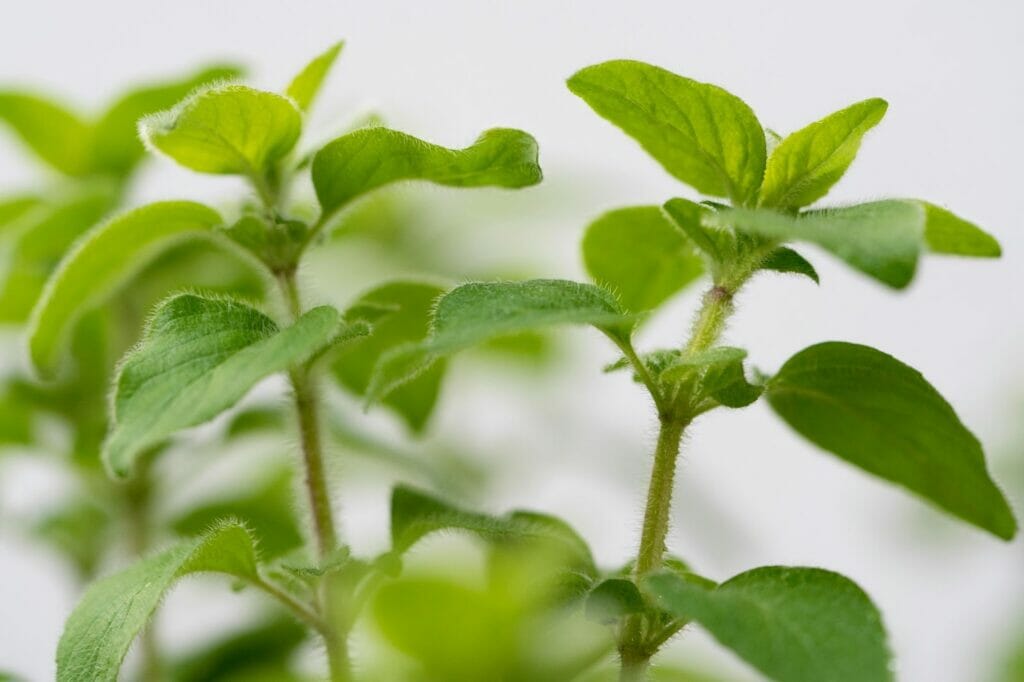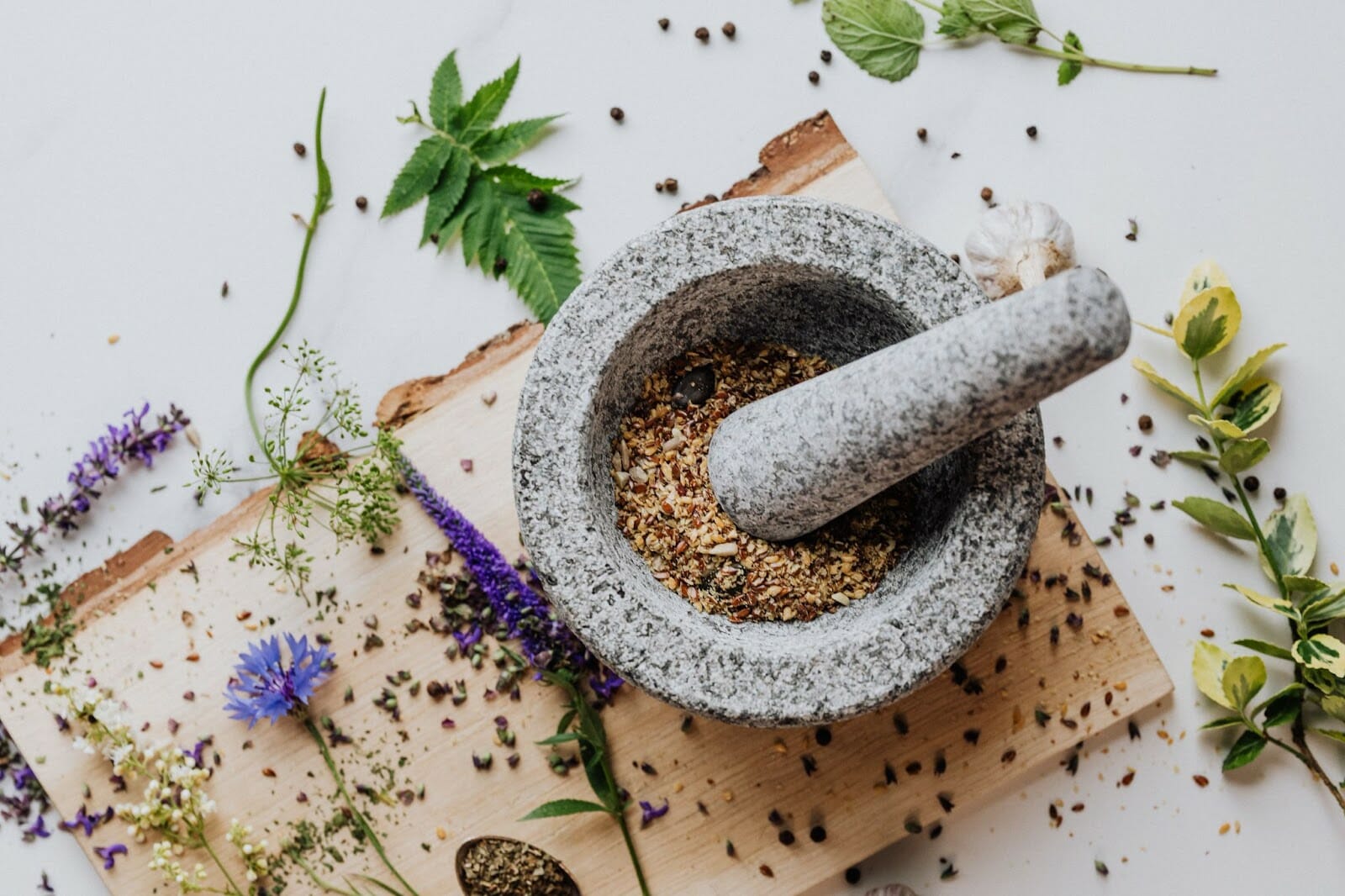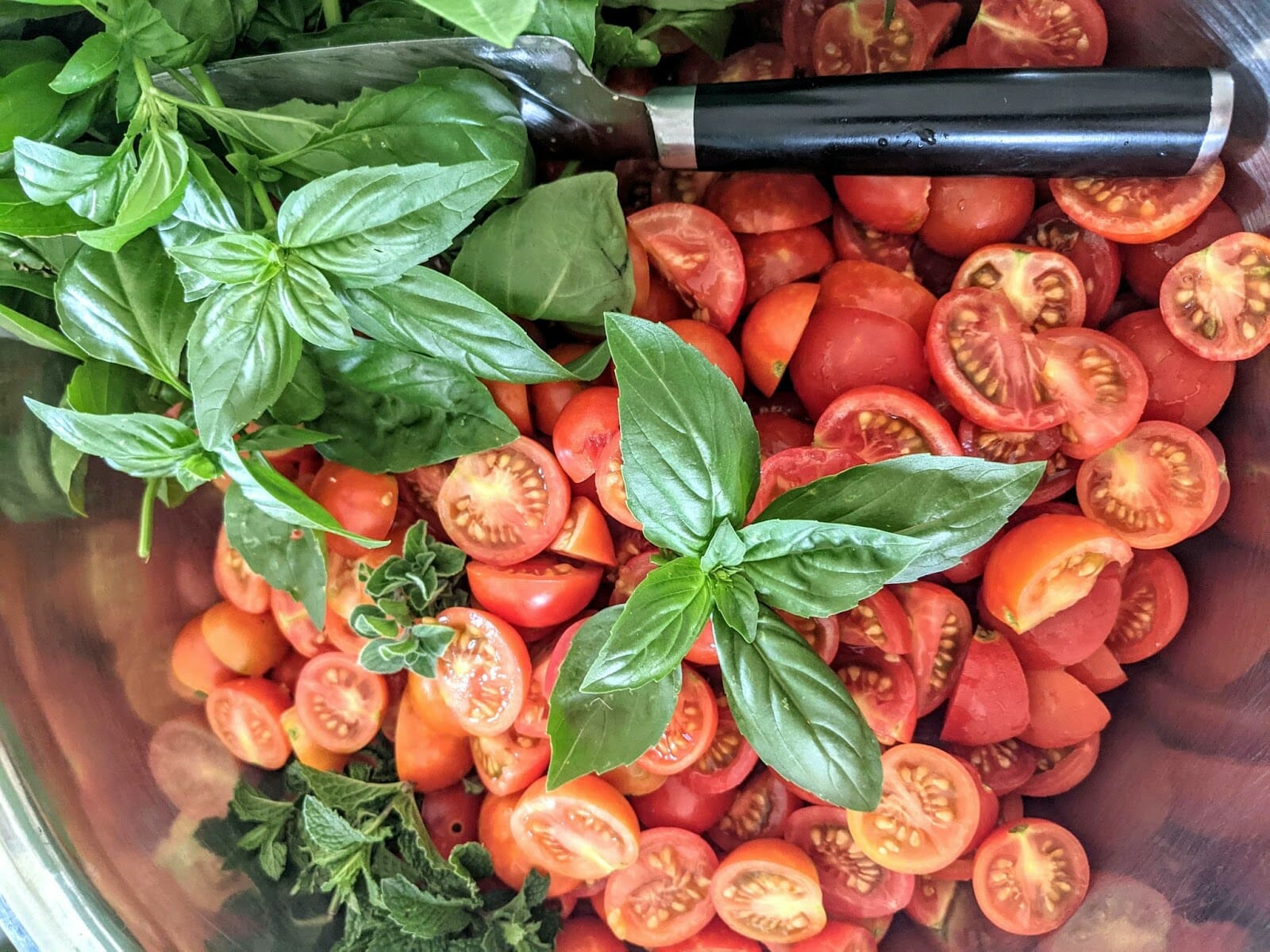Oregano is an herb that comes from the mint family, native to the Mediterranean. It is commonly used as a seasoning for salads, soups and pizza, as well as a spice for various meats. It has a strong, aromatic flavor that can be used to enhance a variety of dishes.
But does it really have health benefits? Let’s take a closer look at oregano and decide whether to use it or skip it.
Oregano Plant and Its Characteristics
Oregano is a popular herb known for its pungent flavor and aroma, making it a staple in Italian, Greek, and Mexican cuisine. It is a hardy perennial plant that grows up to 80cm tall, with small leaves and pink or purple flowers that bloom in summer.
Oregano contains antioxidants, anti-inflammatory compounds, and has anti-bacterial properties making it a healthy addition to your diet. It can be used fresh or dried and is versatile in its applications. Sprinkle it on roasted vegetables, pizza, or pasta for an added kick of flavor.
Pro Tip: To get the most robust flavor from your fresh oregano plant, harvest the leaves just before the plant blooms in the summer.
Dried VS Fresh Oregano
Oregano is a common herb used in many dishes around the world. Not sure whether to use fresh or dried oregano? Here’s what you need to know to decide whether to use oregano or to skip it altogether.
Fresh oregano has a milder flavor and is best used in dishes with shorter cooking times, such as salads or dressings. It is also a great garnish for Mediterranean-style dishes.
Dried oregano has a stronger flavor and can be used in dishes with longer cooking times, such as sauces or stews. It is also a common ingredient in Italian and Mexican cuisine.
So, whether to use oregano or to skip it depends on the recipe and your personal preference. While fresh oregano has a milder flavor, dried oregano is stronger and more versatile, suitable for many different types of dishes. Pro tip: If you have fresh oregano and want to use it to replace dried oregano, use twice as much fresh oregano as the recipe calls for.
Nutritional Benefits of Oregano
Oregano is a perennial herb that belongs to the mint family and is popularly used in Mediterranean cuisine. However, apart from its culinary uses, oregano also has several nutritional health benefits that you cannot skip.
Oregano contains high levels of antioxidants, which help in fighting inflammation and reducing the risk of chronic diseases like cancer and heart diseases. Additionally, it is a rich source of fiber, iron, and calcium, which are essential for optimal bodily functions, including bone health, immunity, and blood clotting. Moreover, it also has antifungal and antibacterial properties that protect against harmful bacteria and infections.
Hence, if you are looking for a natural way to add flavor to your dishes while reaping the numerous health benefits, do not skip oregano. Including oregano in your diet is a simple and easy way to enhance the nutritional value of your meals!
wellhealthorganic.com:health-benefits-and-side-effects-of-oil-of-oregano
Oregano is a popular herb that has a wide variety of uses. From culinary to medicinal applications, oregano is becoming one of the most widely used herbs in the world.
In this article, we will explore the various uses of oregano and help you decide if it is something you should be using in your daily life.
Culinary Uses of Oregano
Oregano is an herb that is widely used in culinary applications, valued for its unique flavor and aroma. Here are some culinary uses of oregano that you can incorporate into your dishes to enhance their taste and aroma:
Pizza: Oregano is a key ingredient in pizza seasoning, adding a distinctive flavor to the tomato sauce and cheese.
Pasta: Oregano works well in tomato-based pasta sauces, providing a depth of flavor that complements the acidity of the tomatoes.
Meat dishes: Oregano pairs well with meat dishes, especially those made with lamb, beef, or pork. It can be used in marinades, rubs, and sauces.
Soups and stews: Adding oregano to soups and stews can provide a warm, spicy flavor that complements the other ingredients.
Salads: Oregano can be used fresh or dried in salads, imparting a pleasant aroma and slightly spicy flavor.
So, next time you have oregano in your kitchen, don’t skip it as its unique aroma and flavor can be the perfect complement to your dish.
Medicinal Uses of Oregano
Oregano is a versatile herb with many medicinal uses, making it a valuable addition to any home remedy toolkit.
Here are some of the most common medicinal uses of oregano:
1) Boosts immunity: Oregano is high in antioxidants and helps fight off harmful bacteria, viruses, and fungi that can weaken your immune system.
2) Relieves respiratory issues: The antibacterial properties in oregano can help relieve coughs, asthma, bronchitis, and other respiratory illnesses.

3) Reduces inflammation: Oregano has potent anti-inflammatory properties that can help reduce pain and swelling associated with conditions like arthritis.
4) Improves digestion: Oregano can help regulate digestion and relieve bloating, gas, and other digestive issues.
Whether you sprinkle it on your pizza or brew it into a tea, using oregano can provide a number of health benefits. So use it liberally and take advantage of its powerful properties!
Pro tip: Always consult a healthcare professional before using oregano for medicinal purposes as overdose can have harmful effects.
Aromatherapy Uses of Oregano Oil
Oregano oil is a powerful essential oil with many aromatherapy uses and benefits. Here are some of the most common ways to use it:
Topical application: Add a few drops of oregano oil to a carrier oil, such as coconut or almond oil, and massage it onto your skin for its antifungal, antibacterial, and anti-inflammatory properties.
Aromatic diffusion: Dilute a few drops of oregano oil in water and diffuse it in an essential oil diffuser to create a calming and energizing atmosphere in your home.
Steam inhalation: Add a few drops of oregano oil to a bowl of hot water and inhale the steam for its sinus-clearing benefits and to relieve symptoms of colds and flu.
It is important to note that oregano oil is potent and should be used with caution. Always dilute it in a carrier oil or water before use, and avoid using it undiluted or taking it orally.
Potential Health Risks of Oregano
Oregano, a popular spice with a distinct taste, is popularly used in various dishes. But apart from adding flavor to food, there are potential health risks associated with the spice.
Let’s take a closer look at oregano and the potential health risks associated with it.
Possible Allergic Reactions to Oregano
While oregano is generally considered safe, it can cause allergic reactions in some people. Symptoms of an oregano allergy may include hives, itching, swelling of the face and throat, and difficulty breathing. In severe cases, anaphylaxis may occur.
It is recommended to perform a patch test before consuming or using oregano oil topically. If you develop any allergic symptoms, avoid using oregano in any form.
Oregano should be used sparingly during pregnancy, as it can stimulate blood flow to the uterus and potentially cause a miscarriage.
It’s always wise to consult with your healthcare provider before consuming any herbs or supplements, including oregano, for medicinal purposes.
Pro Tip: Always start with small amounts of oregano to test your tolerance, and avoid overuse or excessive consumption.
Interference With Medications
Oregano is a staple herb for many dishes, but it can have potential health risks if consumed in large amounts, especially as it can interfere with medications.
Oregano contains compounds that can affect the body’s absorption and metabolism of some medications, including blood thinners, lithium, and diuretics. This can cause these medications to be less effective or more potent, leading to potential side effects and health risks.

However, consuming oregano in small amounts in cooking is generally safe and will not cause any health risks. If you are taking medication, it is best to talk to a doctor or pharmacist before consuming oregano or any other herbal supplement.
Pro tip: It is always best to check with a healthcare professional before adding any new supplement or herb to your routine.
Side Effects of Consuming Too Much Oregano
While oregano is a flavorful and healthy herb, consuming too much of it can have adverse effects on your health.
Some of the side effects of consuming too much oregano include:
Digestive issues: Oregano has high levels of thymol, which can irritate the digestive tract and cause stomach cramps, diarrhea, and vomiting.
Allergic reactions: Some people may be allergic to oregano and may experience symptoms such as swelling, rash, and difficulty breathing.
Risk of bleeding: Oregano contains a compound called coumarin which can interact with blood-thinning medications, increasing the risk of bleeding.
Toxicity: Consuming excessive amounts of oregano oil can be toxic, leading to symptoms such as dizziness, vomiting, and difficulty breathing.
While oregano has many health benefits, it’s essential to consume it in moderation and be aware of potential side effects. Pro Tip: Consult with your doctor before using oregano supplements.
Conclusion
Oregano is an incredibly versatile herb that can be used in a variety of recipes to add depth of flavor. Not only is it a flavorful addition to dishes, but it can also be used to support a healthy lifestyle.

Oregano is packed with antioxidants, vitamins, and minerals that can boost the immune system and even reduce inflammation. With all these potential benefits, it is definitely worth giving oregano a try.
Summary of oregano’s benefits and risks
Oregano is a herb that is commonly used for culinary and medicinal purposes. Here’s a summary of its benefits and risks to help you decide whether to use it or skip it:
Benefits:
Oregano is rich in vitamins A, C, and K, as well as antioxidants that may have anti-inflammatory and anti-bacterial properties. It may also help lower blood sugar levels and improve digestion.
Risks:
Oregano oil can be toxic in large doses and may cause skin irritation or inflammation. It may also interact with certain medications, so it’s best to consult with a healthcare professional before using oregano as a supplement.
Conclusion:
Oregano can be a valuable addition to your diet and supplement routine when used in moderation and with caution. It’s always best to seek professional advice, especially if you have any underlying health conditions or are taking prescribed medication.
Recommendation for Using Oregano
Oregano is a versatile herb that can add flavor to a variety of dishes. Here are some recommendations for using oregano:
- For Italian dishes: use dried oregano in tomato sauces, pizza, and pasta dishes.
- For Mexican dishes: use fresh oregano in salsas, tacos, and enchiladas.
- For Mediterranean dishes: use fresh or dried oregano in salads, roasted vegetables, and meat dishes.
However, if you are not fond of the strong, slightly bitter taste of oregano, you can skip it altogether and use other herbs like basil, thyme, or parsley instead. Ultimately, the decision to use or skip oregano depends on your taste preferences and the dish you are preparing. Pro Tip: You can also dry fresh oregano to use in cooking later.


